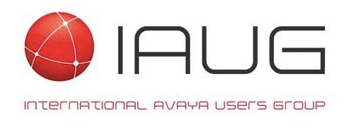Contact center environments are complex. A myriad of disparate solutions must seamlessly integrate to facilitate productive and positive interactions between customer service agents and customers. A tall order. It’s hard enough to do the right thing for the customer once you have them on the line. What if they can’t even reach you? Or you them?
Believe it or not, many organizations are still doing manual testing to ensure that their contact center is working as it’s supposed to. Why? Automated testing is far more efficient. It performs the same job as a team of 10 in 15 minutes rather than 70 man hours. More importantly, it allows companies to quickly expand their test coverage to include those innocuous, less critical use cases that manual testing teams didn’t have time to address. With automation, companies can do more with less: expand test coverage, reduce personnel expenses related to manual testing, allocate resources to fixing defects rather than executing tests, mitigate risk, preserve CX and adopt a continuous test methodology.
Test automation kind of makes sense, doesn’t it?
With automation, companies can do more with less: expand test coverage, reduce personnel expenses related to manual testing, allocate resources to fixing defects rather than executing tests, mitigate risk, preserve CX and adopt a continuous test methodology.
APIs Take Automated Testing to the Next Level
APIs have been around for a long time but they are now being recognized as game-changers for modern DevOps teams. APIs allow functionality from one application to be embedded within another. An example will help explain. Janie works on the development team and uses Jenkins to orchestrate their IVR application build and deployment activities. After deployment she regularly runs tests to ensure their systems are working as they should. Rather than logging into the test system via a separate interface, Janie now initiates her automated test cases from Jenkins as part of the overall pipeline. A sequence of API calls authenticates, triggers test calls, and retrieves results, enabling Janie to do her job from a single platform. This is a powerful capability for teams who want to leverage existing workflows, collaborate or take their testing practices to the next level.
Automated Testing with Empirix Hammer Cloud Platform
Empirix Hammer Cloud Platform (HCP) is an easy-to-use, fully automated self-service testing platform for voice applications and contact center systems. Designed with DevOps in mind, it allows cross-functional collaboration for testing across the entire software development lifecycle (SDLC) to identify and eliminate customer-impacting defects, unplanned downtime and rollbacks. HCP’s flexible deployment options and business model is designed for organizations big and small who want to:
- Increase test coverage
- Collaborate cross-functionally
- Streamline workflows
- Expand automation
- Execute hundreds of tests simultaneously
- Reduce OpEx, CapEx and TCO
- Embrace DevOps methodologies
RESTful APIs and hybrid deployment options are an integral part of Empirix’s latest Hammer Cloud Platform release. Our hybrid model allows you to generate traffic from any combination of on premises, private or public cloud networks while minimizing or even eliminating toll charges. This approach enables testing of both in-network voice services and inbound call routing to closely simulate user and customer experience.
In the contact center environment, these features help to reduce rework, streamline workflows, support cross-functional collaboration and enable DevOps orchestration. Now, disjointed teams can work from the same blueprint and have access to the renowned Hammer technology from within the systems they use every day.
Learn more about Hammer Cloud Platform today. Watch this webcast today.

